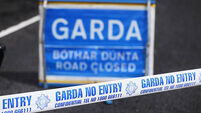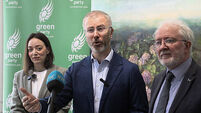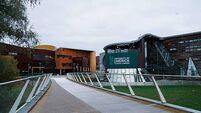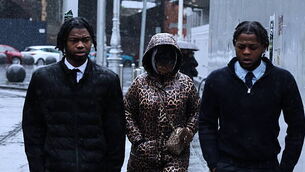'We could operate without migrants, if we all did a six-day week': Leo Varadkar
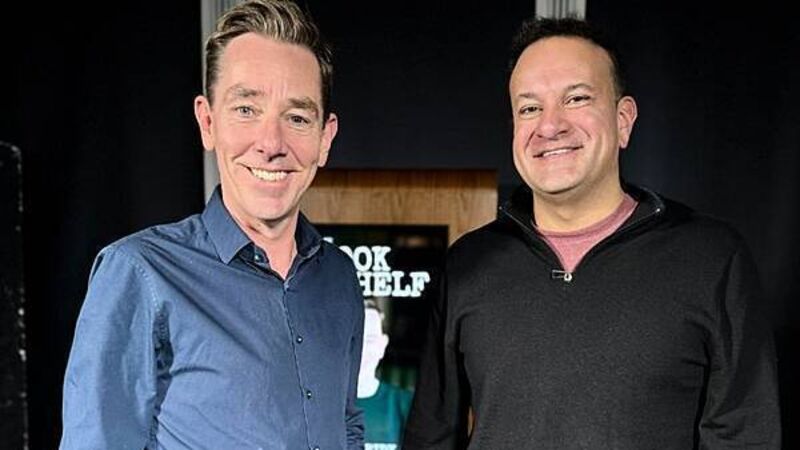
Kenneth Fox
Former taoiseach Leo Varadkar said, "Ireland could operate without migrants, but everyone would have to work a six-day week."
Speaking on a recent episode of The Bookshelf with Ryan Tubridy, the former Fine Gael leader said that people underestimate how crucial migrants have become to the Irish workforce.
“The number of people who have come to Ireland over the past few years, in part driven by Ukraine, has been quite large."
“When you look at the workforce, roughly 20 per cent of workers are not born in Ireland. So that is healthcare workers, taxi drivers, and people who work in restaurants.”
“We could actually operate Ireland without migrants, if we all did a six-day week.”
Mr Varadkar said it would mean people in hospitals would have to work longer hours, or a teacher would have to pick up extra shifts as a taxi driver to fill the gap left by migrants.
His comments were part of a larger conversation about populism and how Ireland has largely avoided it.
"It is sweeping across other democracies, but the centre of Ireland has held.”
“I think that is largely down to the very generous budgets we have seen in the last few years to help people with the cost of living," he said.
Regarding how anti-immigrant protestors are trying to reclaim the Irish flag, Varadkar said: "In terms of their attempt to take over the Irish flag. They have not succeeded as far as I am concerned.”
“There are a lot of threads to anti-immigrant rhetoric, and some of it is racism and a lot of it is not."
Speaking about his decision to resign as Taoiseach, he said it was time for him to do something new.
“I was probably ready to go before I realized it. I was psychologically prepared for regret, but it has not really happened yet.”
“So far, it has been good. One of my friends said it is like a gilded cage, and it is.
“As a politician, you get taken around in your cage, and you get to see great places and meet great people. You have very little control over your own life or schedule.”
“Also, the intellectual freedom you do not get in politics. You have to be so careful about what you say, as you have to think about what the party will think or the media.”

Always on edge
Despite no longer being in politics, he does still get noticed on the street.
“One thing you notice about people in Ireland is that they immediately react with their face when they see you. It is either joy, shock or disgust, and you can tell from their face straight away.”
“As a public figure, there is always a low-level anxiety or always on edge, and you notice people taking photos on the sly.”
Regarding his time as Taoiseach, he spoke about the challenging periods he saw the country through.
“We suffer from pessimism bias in Ireland. We had three financial shocks under my leadership. There was the 2008 crash, Brexit, and then the pandemic.”
“On each occasion, we bounced back quicker than expected, and if we had known that, maybe we would have invested more in housing and infrastructure.”
Mr Varadkar said while it is important to listen to experts like the Central Bank or the Irish Fiscal Advisory Council (IFAC), they are not always right.
“It is also a good reason to listen to experts but not obey them. They are a stuck clock; they always say the same thing to rein in spending on not to cut taxes.”
When asked by Tubridy, what he found the most important or influential book was Bunreacht na hÉireann (the Irish Constitution).
“In lots of different ways, I have been part of changing the Irish constitution, such as the same-sex marriage referendum or lifting the abortion ban.”
He also spoke about how, as a former taoiseach he is now part of the Council of State, which advises the President on important matters such as changes to the constitution.
In terms of the leaders he met, he said, while he does agree with him politically, Trump certainly stood out.
“Trump is a big personality, and you feel like you are going on his show. Too your face, he will talk trash about a lot of people, but that is kind of fun.”
“I think likability is important, and that is why you are seeing a rise in populism.”
In terms of what he is doing next, he is enjoying doing smaller things as opposed to the full-on nature of political life.
“When I was a politician, I would often have 14 engagements during the day, compared to the two today. Life is definitely easier even though I am less consequential.”
“I am involved with an NGO that helps women get better access to healthcare. and also help people in the LGBTQ community around the world.”
“I feel like this is a gap year before I can consider a full-time role that is all-consuming," he said.
